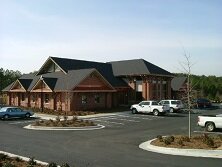Cancers That Strike Women
Curbing Your Risk
More than a quarter million American women are affected by breast and gynecologic cancers every year. Yet much can be done to detect these cancers early, and certain lifestyle habits may help prevent disease.
In your 20s:
- Get a clinical breast exam every three years between ages 20 and 39, then every year after. Develop the habit of performing breast self-examinations monthly beginning at age 20.
- Get a pelvic exam, including a Pap smear, starting at age 21, and then according to your doctor's recommendations.
- Get an HPV vaccination (as early as possible, starting at age 12).
In your 30s:
- Do you have a family history of breast cancer? If you haven't already, talk to your doctor about your family history and whether other screenings may be needed at this time.
In your 40s:
- Add a baseline mammogram by age 40, every one to two years during your 40s, then annually after age 50.
In your 50s:
- Women at high risk for endometrial cancer may be screened with endometrial biopsy and a transvaginal ultrasound at menopause and periodically thereafter.
Risk-reducing tactics for all women:
- Eat a low-fat, high-fiber diet, and exercise
- Limit alcoholic beverages to one a day.
- Quit tobacco.
- Discuss the benefits and risks of menopausal hormone therapy with your physician.
- Know your family history, and educate yourself on risk factors and early signs of cancer.
- Talk to your doctor if you notice any troubling symptoms, including abnormal bleeding, pain or swelling.
The Georgia Regents University Cancer Center Information Line offers help, guidance and referrals, Monday to Friday, 8 a.m. to 6 p.m. Call us at 888-365-0747.






